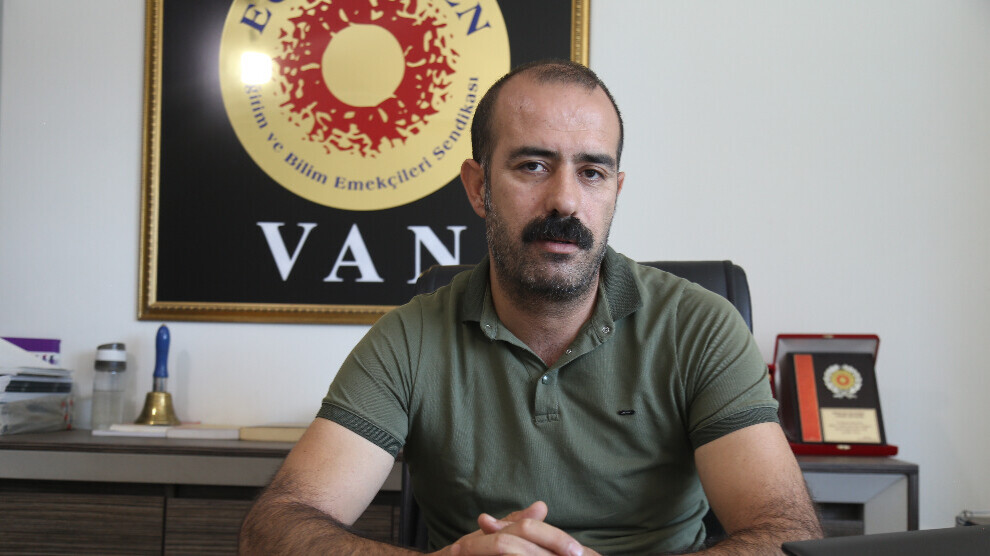The academic year has started in Kurdistan and Turkey. Just like every year, millions of Kurdish children are starting school and are forced to leave their mother tongue outside the class.
Eğitim-Sen, the education trade union Van Branch co-chair Murat Atabay, said that with the start of the academic year, Kurdish children once again have to receive education in a language other than their mother tongue.
'Mother language is important for children’s psychological development'
Atabay said: "Why is education not given in one’s mother tongue, why shouldn’t children receive education in their mother tongue? We have been demanding this for years."
Atabay added that Kurdish children face many difficulties because they cannot receive education in their native language, as demonstrated by scientific and pedagogical data, because "when children do not receive education in their native language, they start school disadvantaged and experience serious psychological problems. When they receive education in a language they do not know or know little, they do not feel comfortable with it and cannot express themselves comfortably. We will see this psychological reflection in their self-confidence or academic failure in the future. This is a huge problem in the field of education right now. There are many different languages in Turkey that need to be dealt with. Kurdish is the most dominant language among them in terms of population, and it is the language used by the majority of the people. At this point, it is very important to provide education for Kurdish people and to remove the barriers in front of them."
'Serious self-assimilation'
Atabay said that there has been serious self-assimilation in recent years, and added: "Our families have been seriously implementing self-assimilation in recent years. Families have started to speak less Kurdish with their children because they were afraid of the consequences. At this point, we need to look back at ourselves as much as we criticize the state's assimilation policies. Why don't we reclaim our mother tongue? Why don't we carry out work in our mother tongue? Or why do we not speak our mother tongue at home, at work, on the street, in the market? At this point, we need to be a little self-critical. It is certainly a big problem that most children go to school hungry during the academic year because of the economic crisis, but I think that the fact that Kurdish children go to school and are denied education in their own mother language, is an even bigger problem."
'We need to promote Kurdish language among the population'
Atabay said that there should not be an official language definition in Turkey, and added: "The Turkish constitution states that the language of the state is Turkish. In fact, there is a very serious problem in the establishment of the state and the writing of its constitution. A state does not have a language. A state has an official language. But we understand what they wanted to do in that article. There is a very serious assimilation policy regarding the Kurdish language that dates back not to 30 years, but to the establishment of the republic. There is an assimilation policy that has been very successful. While 90 percent of Kurds spoke Kurdish in their homes and on the streets in the 1920s, unfortunately, today, speaking Kurdish has dropped to 7-8 percent in Kurdish provinces. Under the AKP government, the assimilation policy suffered by the Kurdish language has turned into auto-assimilation and continues to this day. This is not just a policy applied to Kurdish provinces, it is applied to all other languages spoken in Turkey, although Kurdish is the language that suffered the most."
Atabay said that the importance of the language should be explained to the people well and added: "Institutions struggling in this field of languages should go to the streets promoting courses and explaining our language."














